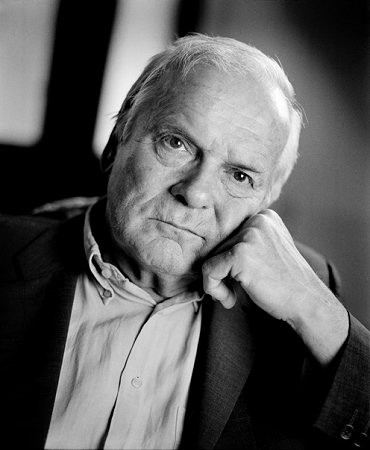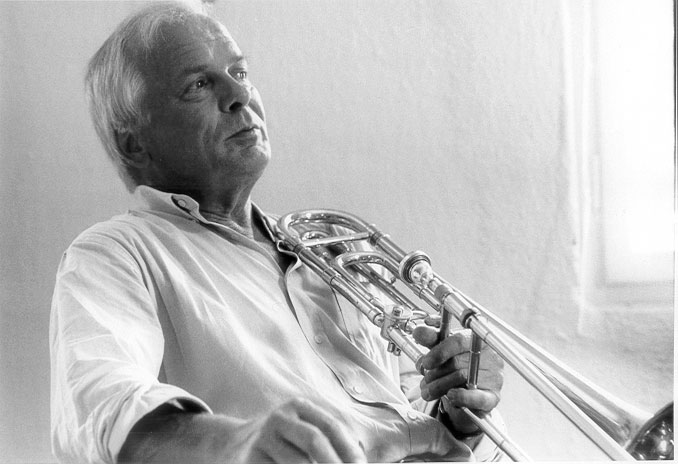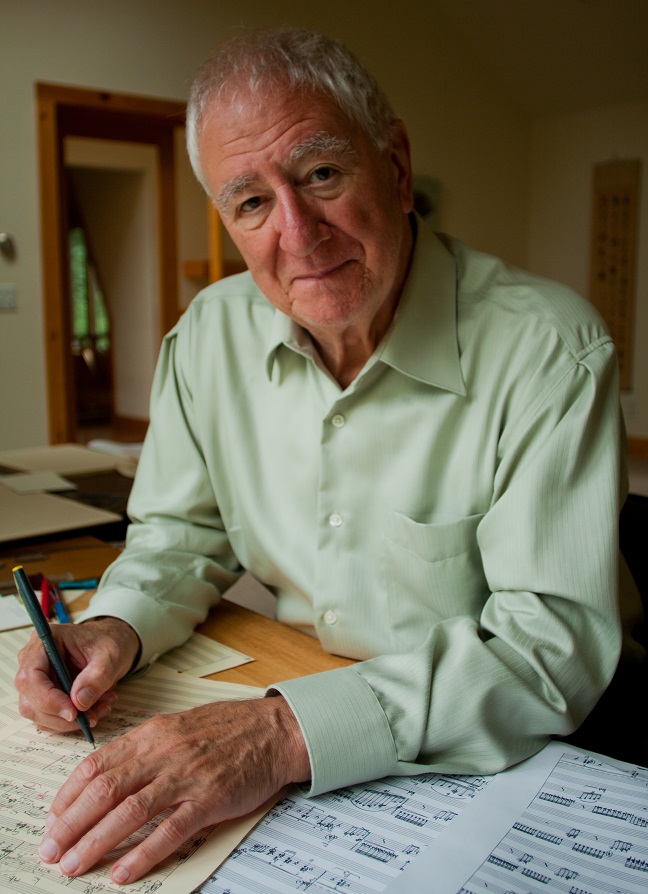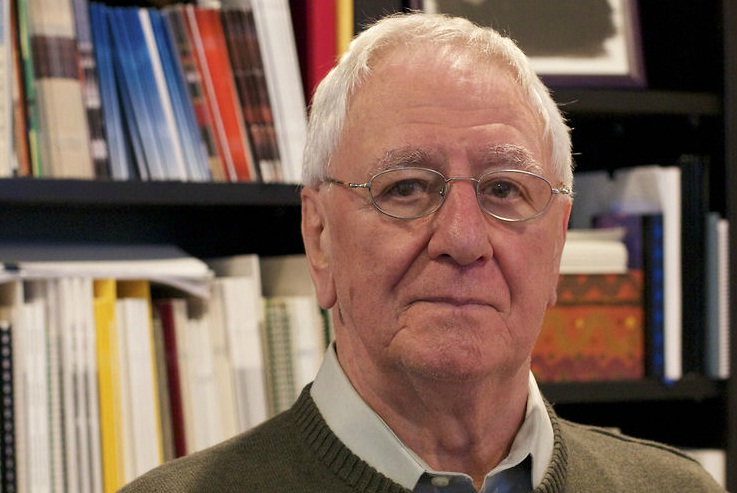<Back to Index>
- Composer Vinko Globokar, 1934
- Composer Bernard Rands, 1934
PAGE SPONSOR


Vinko Globokar (born Anderny 7 July 1934) is a French avant garde composer and trombonist of Slovene descent.
His work is noted for its use of unconventional and extended techniques, closely allying him to contemporaries Salvatore Sciarrino and Helmut Lachenmann. Unlike the work of Sciarrino and Lachenmann, however, Globokar's music also places great emphasis on spontaneity and creativity, and often requires improvisation. His extensive output is largely unknown outside of experimental music circles.
As a trombonist, he has premiered works by Luciano Berio, Mauricio Kagel, René Leibowitz, Karlheinz Stockhausen, and Toru Takemitsu, as well as his own compositions.
Globokar was born in Anderny, France. In 1947 he moved to Yugoslavia, where he played jazz trombone until 1955, at which point he relocated to Paris in order to study at the Conservatoire de Paris. At the Conservatoire, he studied composition with René Leibowitz (a noted student of Arnold Schoenberg) and trombone with Andre Lafosse. In 1965, he moved to Berlin and began composition lessons with Luciano Berio, whose Sequenza V he later performed.
In the later 1960s he worked with Karlheinz Stockhausen on some of his compositions from the cycle Aus den sieben Tagen, and co-founded the free improvisation group New Phonic Art. From 1967 to 1976 he taught composition at the Musikhochschule in Cologne. In 1974, he joined IRCAM as the director of instrumental and vocal research, a post which he occupied until 1980.
After leaving IRCAM, he conducted a number of high profile orchestral groups, including the Warsaw Philharmonic, the Tokyo Philharmonic Orchestra, the Finnish Radio Symphony Orchestra, the Westdeutscher Symphonie, and the Jerusalem Symphony Orchestra, among others. From 1980 until 2000, he directed 20th century music performance at Scuola di Musica di Fiesole near Florence.
In 2002, Globokar was bestowed with the Prešeren Award for his life-time work.
Globokar's music is notable for its spontaneity, energy, and innovative use of unorthodox instrumental and compositional techniques. His works often feature indeterminacy and improvisation, reflecting his own background in Jazz and free improvisation. His timbral palette is extremely diverse, and his pieces employ an often astounding array of extended techniques. For example, in his solo percussion piece Toucher, the performer narrates a story while simultaneously playing the syllabic patterns on a percussion array.


Bernard Rands (born Sheffield, England, 2 March 1934) is a composer of contemporary classical music.
Rands studied music and English literature at the University of Wales, Bangor, and composition with Pierre Boulez and Bruno Maderna in Darmstadt, Germany, and with Luigi Dallapiccola and Luciano Berio in Milan, Italy.
He held residencies at Princeton University, the University of Illinois and York University before emigrating to the United States in 1975; he became a U.S. citizen in 1983. In 1984, Rands's Canti del Sole, premiered by Paul Sperry, Zubin Mehta, and the New York Philharmonic, won the Pulitzer Prize for Music.
He has since taught at the University of California, San Diego, the Juilliard School, Yale University and Boston University. From 1988 to 2005 he taught at Harvard University, where he became Walter Bigelow Rosen Professor of Music Emeritus. His notable students include Beth Denisch, Paul Dresher, Bun-Ching Lam, Michael Daugherty, Jing Jing Luo, Sidney Corbett, Daron Hagen, Marc Mellits, Vic Hoyland, Dominic Muldowney, Roger Marsh and Robert Scott Thompson.
Rands received many awards for his work, and was elected and inducted into The American Academy of Arts and Letters in 2004. From 1989 to 1995 he was composer - in - residence with the Philadelphia Orchestra.
Rands's music is widely recorded. The recording of his Canti D'Amor by the men's vocal ensemble Chanticleer won a Grammy Award in 2000.
Rands is married to American composer Augusta Read Thomas.